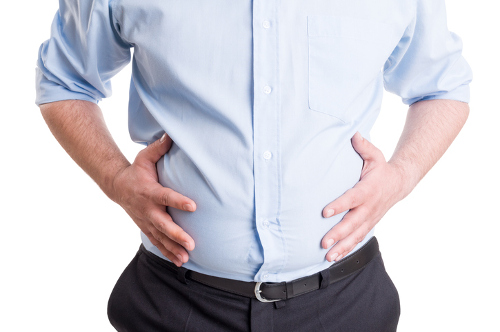Eight tips to help delayed stomach emptying
Gastroparesis is a medical condition that causes a delay in the emptying of the stomach. It occurs because the normal movement of the stomach muscles, which serves to push food through the digestive tract, does not work correctly or slows down.
Symptoms of gastroparesis include:
- bloating
- heartburn
- nausea
- stomach pain
- vomiting
Tips to help with gastroparesis
According to the International Foundation for Functional Gastrointestinal Disorders, treatment for gastroparesis is primarily based on dietary changes, with medication being an additional option.
Some changes which can help to ease symptoms include:
- Eating smaller meals
Increasing the number of daily meals and decreasing the size of each one can help alleviate bloating. The stomach may also be able to empty more quickly.
Eating smaller amounts of food at each meal means the number of meals should be 4 to 6 per day to meet nutritional needs.
- Chewing food properly
If food is not chewed enough in the mouth, it requires more effort to be broken down in the stomach. Food that is not properly broken down in the stomach will not empty easily into the small intestine.
If necessary, a person should address any dental problems they have that may be preventing the thorough chewing of their food.
- Avoiding lying down during and after meals
Lying down while eating, or within 3 hours of a meal, can delay stomach emptying. This is because the helpful effects of gravity are reduced. Lying down, during or following meals, also contributes to acid reflux.
Going for a walk after eating, or engaging in another gentle physical activity, may help to stimulate the stomach muscles.
- Drinking liquids between meals
As fluids take up space in the stomach, it may be beneficial to drink liquids between meals, rather than during them.
- Taking a daily supplement
Malnutrition is a possible complication of gastroparesis, so some people with the condition may wish to take daily multivitamin and multimineral supplements to avoid this.
- Avoiding certain foods
Certain foods are more difficult to digest and can make the symptoms of gastroparesis worse. They include:
Avoiding foods high in fat, particularly meat or dairy products, as well as junk food, may help to treat gastroparesis.
Fatty foods. Fats delay emptying of the stomach. However, some fats are still important for health. Liquids containing fats, such as smoothies and shakes, may be easier to digest than solids. Limiting high-fat meats and dairy products that can worsen symptoms is also helpful.
Fiber-filled foods. Fiber increases the time it takes for the stomach to empty and can contribute to blockages, also known as bezoars, in the stomach. High fiber foods to avoid include:
- fruits such as apples, berries, figs, and oranges
- vegetables such as broccoli, cauliflower, cabbage, and green beans
- whole grain cereals
- nuts and seeds
- beans and lentils
Foods that cannot be chewed easily. If foods are not easy to chew, they will not be sufficiently broken down by the time they reach the stomach. Examples include nuts, seeds, corn, and popcorn.
Junk foods. Because the stomach empties slowly in people with gastroparesis, it is important to consume mainly healthy and nutritious foods. These types of foods help to reduce the risk of becoming full on foods such as pizzas, chips, fries, sodas, and sweets, which do not provide adequate nutrition.
- Foods to eat
It may be helpful for a person to work with a dietitian to discover what foods are easiest to digest and to ensure nutritional needs are met. However, in general, the following foods are encouraged for those with gastroparesis:
Fruits and vegetables
- blended fruits and vegetables, such as purees or smoothies
- canned peaches and pears
- well-cooked fruits and vegetables rather than raw ones
- juices
- soups and broths
Carbohydrates and starches
- corn tortillas
- English muffins
- puffed wheat and rice cereals
- potatoes and sweet potatoes, without skin
- white or refined breads, crackers, bagels, pasta, and rice
Meats, eggs, and dairy
- reduced-fat cottage cheese
- custard
- eggs
- ground or pureed meats
- low-fat milk and milkshakes
- plain yogurt and frozen yogurt
- poultry without the skin and not fried
- shellfish
- tofu
- tuna in water
- Trying a 3-phase approach
The Gastroparesis Patient Association for Cures and Treatments recommend a 3-phase plan in their dietary guidelines that may be helpful for some people:
Phase 1: Consists of liquids such as broths and vegetable juices.
Phase 2: Includes more substantial soups containing noodles and rice, along with peanut butter, cheese, and crackers.
Phase 3: Adds in soft starches, as well as baked chicken and fish.
A person should consult a doctor before starting this diet.
———————————————————————————————-
Watch your favorite programs, documentaries, informative packages and latest NEWS(English and Urdu).
Watch Humsub tv Live Streaming here: Humsub.tv
Read English Latest Articles and News here: Humsub
Read Urdu Latest News and Articles here: Urdu News
———————————————————————————————-

